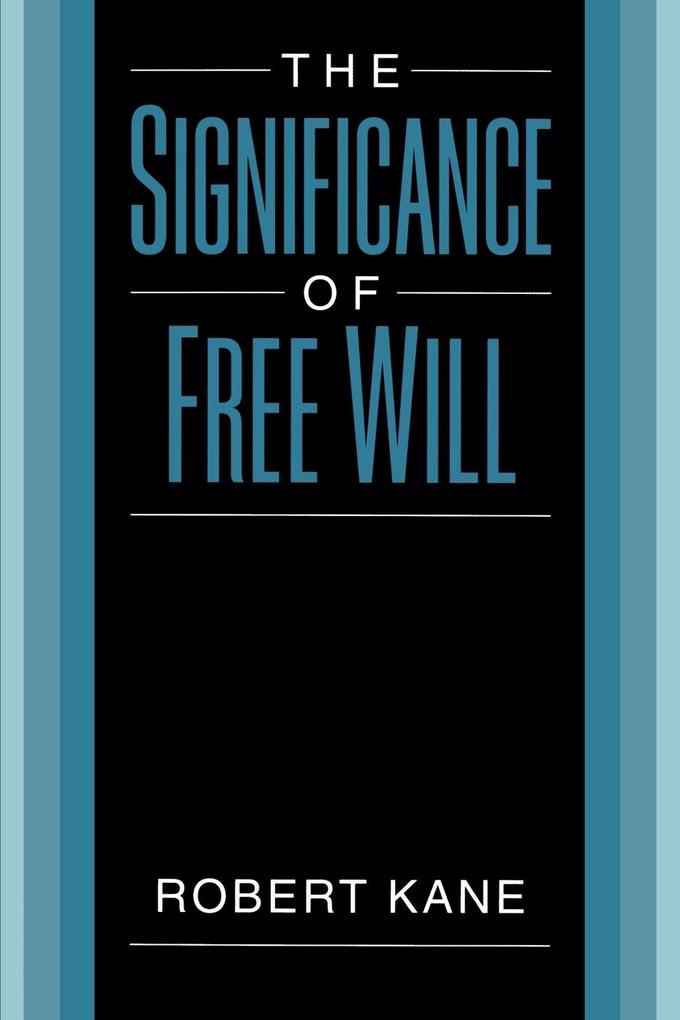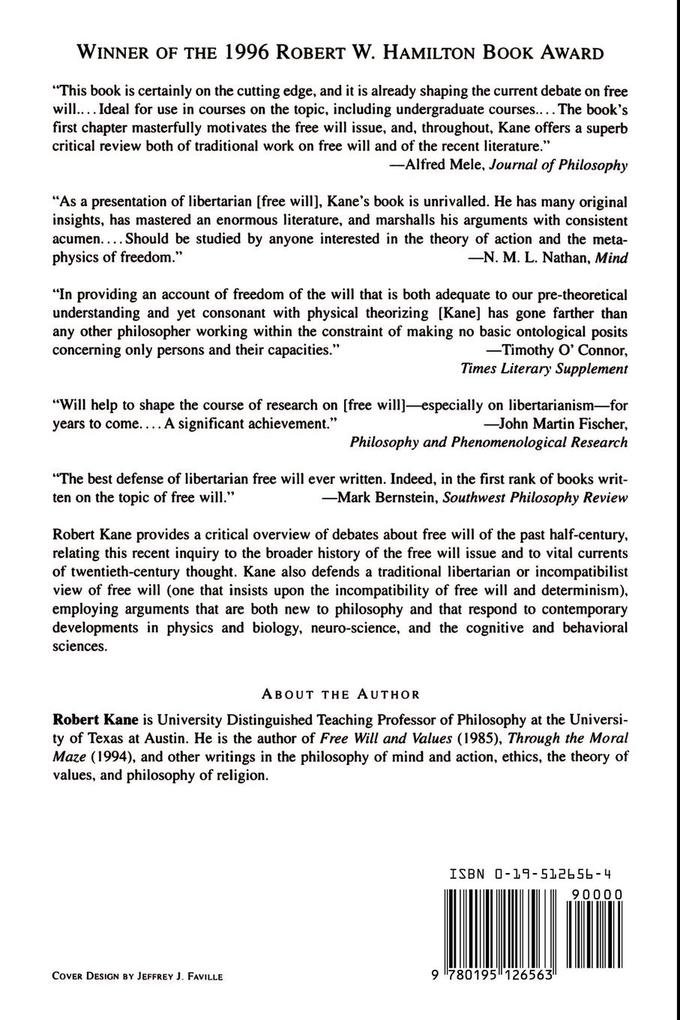
Zustellung: Sa, 17.05. - Mi, 21.05.
Versand in 6 Tagen
VersandkostenfreiBestellen & in Filiale abholen:
"A magisterial work (that) culminates twenty-five years of thinking about the problems of free will. For those who believe both that robust free will cannot survive in a deterministic climate and that a viable free will need be scientifically respectable, Kane's work may prove salvific." -- Mark Bernstein, University of Texas at San Antonio. In the past quarter-century, there has been a resurgence of interest in philosophical questions about free will. After a clear and broad-reaching survey of these recent debates, Robert Kane presents his own controversial view. Arguing persuasively for a traditional incompatibilist or libertarian conception of free will, Kane demonstrates that such a conception can be made intelligible without appeals to obscure or mysterious forms of agency and thus can be reconciled with a contemporary scientific picture of the world.
Inhaltsverzeichnis
- 1: Introduction
- I. The Ascent Problem:Compatibility and Significance
- 2: Will
- 3: Responsibility
- 4: Alternative Possibilities
- 5: Ultimate Responsibility
- 6: Significance
- II. The Descent Problem: Intelligibility and Existence
- 7: Plurality and Indeterminism
- 8: Moral and Prudential Choice
- 9: Efforts, Purposes, and Practical Reason
- 10: Objections and Responses
- 11: Conclusion
- Notes
- References
- Index
Produktdetails
Erscheinungsdatum
01. August 1998
Sprache
englisch
Seitenanzahl
280
Autor/Autorin
Robert Kane
Verlag/Hersteller
Produktart
kartoniert
Gewicht
459 g
Größe (L/B/H)
229/152/17 mm
ISBN
9780195126563
Entdecken Sie mehr
Bewertungen
0 Bewertungen
Es wurden noch keine Bewertungen abgegeben. Schreiben Sie die erste Bewertung zu "The Significance of Free Will" und helfen Sie damit anderen bei der Kaufentscheidung.











